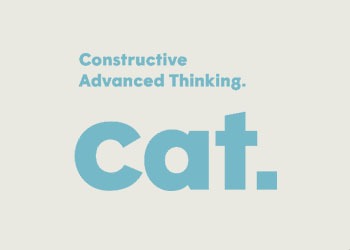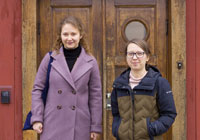

SCAS News - 25 November, 2022
Another CAT Research Group to be Hosted by SCAS
Next week, a new group of participants of the Constructive Advanced Thinking (CAT) programme
will be welcomed
to the Collegium for a two week-long research stay.
The group’s project is titled
Corruption and Anti-Corruption in Empirical Research: Critical Reflections on Concepts, Data and
Methods and was among
those selected in the first round of applications when the CAT programme
was initiated in 2019.
The whole team consists of five researchers, namely Ilona Wysmułek (Sociology, Institute of Philosophy
and Sociology, Polish Academy of Sciences, Warsaw); Marina Povitkina (Political Science, University
of Oslo, and Quality of Government Institute, Gothenburg); Oksana Huss (International/Area Studies,
University of Bologna, and Anti-Corruption Research and Education Centre, Kyiv); Christopher Starke (Communication/Philosophy, University of Amsterdam); and Nils Köbis (Psychology/Economics, Max
Planck Institute for Human Development, Berlin), although only part of the group will actually be present
in Uppsala this time.
The team members describe the project as follows:
“Corruption scholars and practitioners alike emphasize the need for theory-based and context-embedded
empirical research. At the same time, researchers recognize that corruption is difficult to measure and
research empirically. As the field continues to grow, there is a need for summarizing the practices,
methodological choices and challenges of the (anti-)corruption research community to spread best
practices and avoid common mistakes. In our project, we aim to address this need and answer a question:
“How to conduct research on corruption that combines methodological, ethical, and security challenges
of data collection and analysis?” We plan to examine research community practices: challenges researchers
face when conducting empirical research on corruption, and how they address these challenges.
In our study, we pose the following questions:
WHAT features of corruption as a research subject create challenges for empirical data
collection and analysis?HOW does corruption as a subject impact research design? What problems appear in
the research process - from data collection to data analysis - and WHAT TO DO ABOUT
THEM?IF and HOW studying ANTI-CORRUPTION is different from studying CORRUPTION? What
problems do ANTI-CORRUPTION researchers face?
To answer these questions, we will launch an online survey with corruption researchers, from academia,
policy, and journalism, and conduct a series of in-depth interviews and focus groups with selected corruption
and anti-corruption researchers and practitioners. We aim to cover challenges corruption and anti-corruption
researchers face throughout the entire research process, from the choice of the theoretical paradigm to
research design, to data analysis, including collection and analysis of sensitive data.
The broader aim of our study on practical experiences with methods in corruption research is to promote
GOOD QUALITY CORRUPTION RESEARCH and empirically grounded INTERVENTIONS.”
In addition to visiting SCAS, the team has previously been in residence at the Madrid Institute for Advanced
Study (February 2022) and the Institut d’Études Avancées de Paris (May 2022). For the fourth and final
visit, the Netherlands Institute for Advanced Study in the Humanities and Social
Sciences in Amsterdam
will be the host.
------
SCAS is one of twelve participating institutes of the CAT initiative, which was developed within the
framework of the Network of European Institutes for Advanced Studies (NETIAS), and launched in
2019. The programme aims at supporting small groups of excellent early-career researchers conducting
fundamental research dedicated to developing new ideas to understand and to tackle current or emerging
societal challenges. The selected groups work on their project for a duration of up to three years and
during this time they are invited to meet for short stays at some of the participating institutes, where
they also get the opportunity to get in contact with the Fellows in residence at the institutes as well as
local research communities.
Read more about the CAT programme >>
Read more about the Network of European Institutes for Advanced Studies (NETIAS) >>






